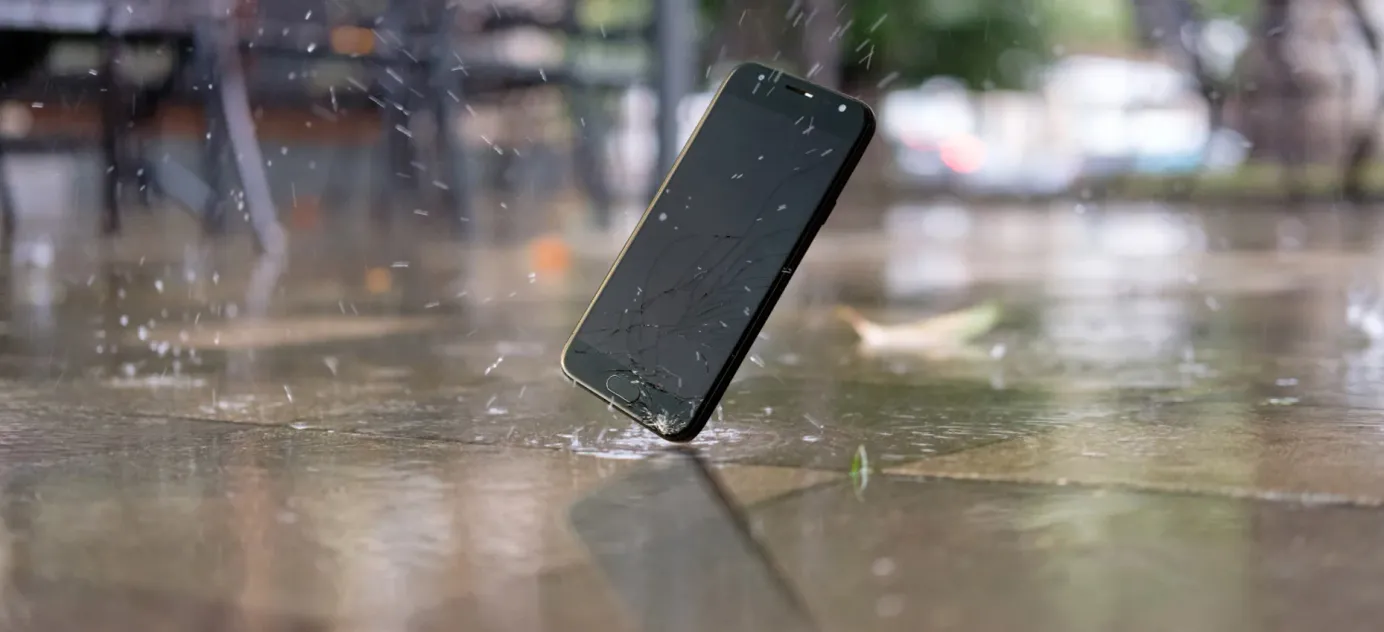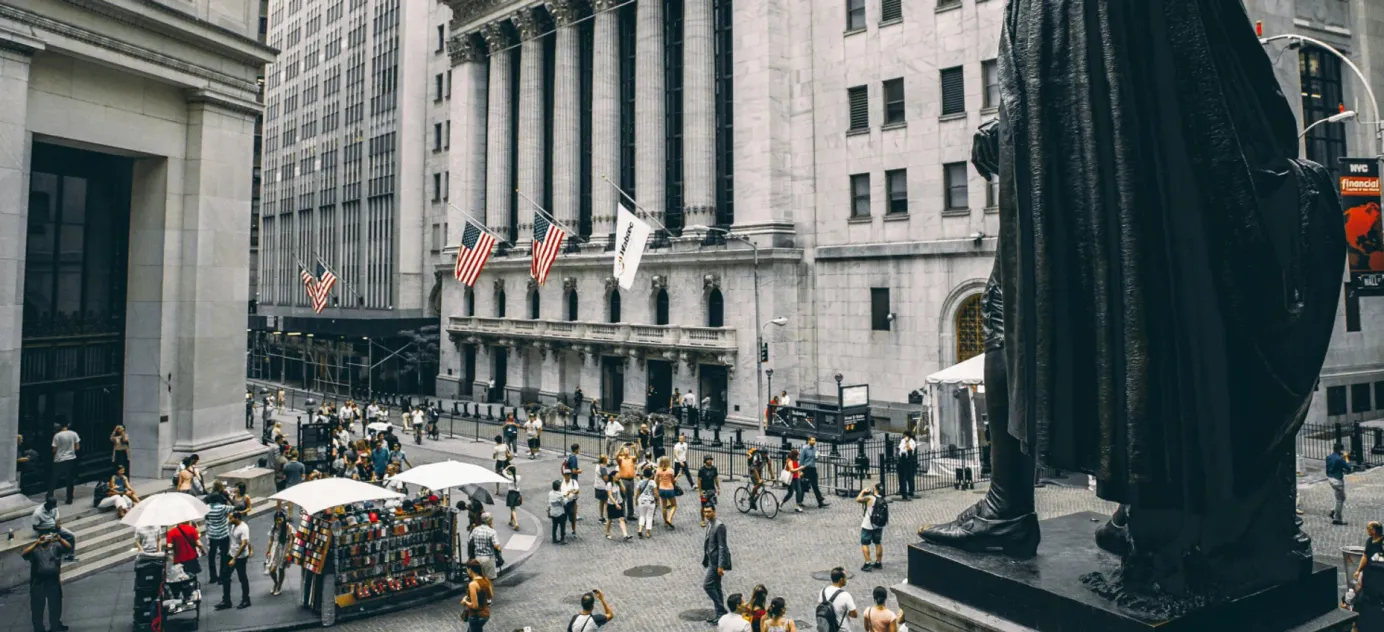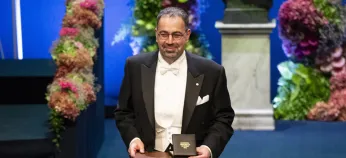
THE BELL WEEKLY: Moscow cheers Putin-Trump call
Hello! This week our top story is Moscow celebrating Vladimir Putin’s return to the top table of international politics after his call with Donald Trump. We also cover the EU clarifying its rules for how oligarchs can get sanctions removed.
Moscow celebrates after Putin’s conversation with Trump
With officials preparing for Tuesday’s talks with the US in Saudi Arabia, Russian authorities and state media at home can hardly contain their delight over last week’s phone call between Donald Trump and Vladimir Putin. It is unclear how the talks will go, or whether the Putin-Trump relationship will turn sour, but the Kremlin already has a big win — and wants to take maximum advantage of the moment.
Looking forward to negotiations
Events are moving fast. The first high-level talks between Russia and the US since the invasion are set for Tuesday, less than a week since Putin and Trump spoke on the phone. The format of the talks is pretty clear. Trump has namedthe American negotiators: CIA director John Ratcliffe, Secretary of State Marco Rubio, National Security Advisor Michael Waltz, and Special Representative for the Middle East Steve Witkoff (who last week flew to Moscow to collect Marc Fogel, a teacher freed in a prisoner exchange for Russian crypto fraudster Alexander Vinnik). Trump’s special representative for Ukraine, Keith Kellogg is notable by his absence. Political analysts suggest that is because Kellogg will play a part in the US-Ukraine negotiating track. That seems to be the case: Kellogg was present when Volodymyr Zelensky met vice-president Vance in Munich and will travel to Kyiv later this week.
It isn’t yet clear who will represent Russia at all stages of the talks, but sources gave Bloomberg and CNN the same fairly obvious list of candidates that The Bell reported last week: Foreign Intelligence Service chief Sergei Naryshkin, and Putin’s aide on Foreign Affairs, Yury Ushakov. Ushakov and Foreign Minister Sergei Lavrov will take part in the first set of talks in Saudi Arabia, where they touched down late Monday evening.
Kirill Dmitriev, head of the Russian Direct Investment Fund, could also be tapped to maintain unofficial contact with the Americans. This also makes sense: Dmitriev tried to act as a liaison between Moscow and Washington during Trump’s first term. He is no stranger to Putin (his wife, Natalya Popova, went to school with Putin’s daughter, Katerina Tikhonova, and is her deputy at the Innopraktika foundation). He also has good relations with the ruling families in both Saudi Arabia and the UAE, with whom RDIF has done many deals. The Daily Beast reported in 2020 that Dmitriev had managed to establish ties with Jared Kushner, Trump’s son-in-law and an influential member of his team. Two sources told The Bell recently that the RDIF boss has been in contact with the Trump administration for some time, including via Kushner.
The negotiations are set to pave the way for a summit between Trump and Putin which, according to the US president, will happen “very soon”.
What the Kremlin thinks
On an official level, the Kremlin is pleased with Putin’s conversation with Trump. State TV channels and propagandists can barely restrain themselves. The confrontation between Russia and the US has not been forgotten, but it has shifted to the past tense. Russian-American relations, “let’s speak cautiously, have every significant chance of moving into a rational field,” said Dmitry Kiselyov on his flagship Sunday night show, Vesti Nedeli. He and his colleagues are highlighting several narratives:
- The current situation is already a win for Putin. Trump was the one who initiated the call — a logical step, Kiselyov said, given “it wasn’t us who broke off relations.”
- Russia is respected at last. Trump’s tone is seen as very important: the conversation was mutually polite and respectful. “It was immediately clear that this call from Trump had a completely different tone from previous Western leaders who called Putin, like Scholz or Biden. There was no moralizing and certainly no threats,” Kiselyov said, backing up his view with a quote from Trump about how Russia and the US fought together in World War II.
- Putin and Trump are like-minded. “Putin always calls for common sense. All things on which Trump is building his revolution — from banning men from women’s sports and stating the fact that there are only two genders, to support for traditional values and scepticism over the West’s green agenda — he [Putin] was talking about long before Trump,” Kiselyov said.
- Russia and the US will settle the world order among themselves, with Ukraine and Europe isolated and humiliated. “The first conversation between Putin and Trump was a minor earthquake, even a devastating tsunami for America’s European allies,” Kiselyov said. Europe will have to try harder to be allowed to join the negotiations.
Don’t be misled by the triumphant tone of the TV coverage: the Kremlin knows very well that talks won’t be easy and may not deliver any results. But the chance of reaching an agreement exists. Back in early November a Kremlin source told The Bell that the possibility of a deal between Putin and Trump should not be ruled out. “Putin is an opportunist,” the source said at the time. “If an opportunity arises to reach an agreement that doesn’t compromise his world view, he’ll take it.”
The Bell’s source still believes it could be possible to bring an end to the war, although it will be very difficult. First, even if the US offers agreements that are acceptable to Putin, Europe and Ukraine will be opposed. The Americans would have to push through that opposition — which won’t be easy, although Moscow sees it as possible. At the same time, Kyiv will not be allowed to gain any meaningful security guarantees. Neither the US or Europe will sign up to defend Ukraine against a nuclear power, Russia believes. Second, as Putin has said many times, Russia will not agree to a truce until all basic questions that are important to him are resolved: guarantees on Ukraine’s status, the non-expansion of NATO — and much more. Complex multilateral negotiations will take a long time and it isn’t clear whether any interim agreement can be reached to bring about a ceasefire that can hold while more substantial talks take place.
What we already know
Peace talks will be long and hard and their success may depend largely on how far the Americans are prepared to put pressure on Europe. But Putin already has an advantage. The strong coalition between the US and EU in support of Ukraine has effectively ceased to exist — the US president is discussing the fate of the world with him. Meanwhile Russian markets and the ruble are soaringamid optimism that sanctions could be lifted, even though nobody in a position of authority has hinted that sanctions relief is on the table.
Why the world should care
The Kremlin knows full well that talks with Trump might lead nowhere, but the very fact that dialog is taking place, and that Russia is returning to the international stage as a fully-fledged player is a big win which it sees as needing to be trumpeted at home and abroad.
The EU looks at how to lift sanctions on Russian oligarchs
The EU’s Supreme Court last week discussed for the first time what Russian oligarchs need to do to have sanctions against them lifted. Namely, they will need to visibly part with any of their Russian businesses, not simply transfer them to other companies within the country.
- The Court of Justice of the European Union is hearing five appeals from Russian businessmen against decisions from lower courts that upheld sanctions. The suits come from billionaires Dmitry Pumpyansky, Viktor Rashnikov, Dmitry Mazepin and German Khan, as well as Yandex’s managing director Tigran Khudaveryan. Each is challenging the basis upon which they were hit with personal sanctions — their status as “leading” business people connected with sectors of the economy that generate “significant” income for the Russian government. The verdicts will become precedent.
- Addressing the cases, a legal spokesman for the Council of Europe said that sanctioned Russians have two options: one political and one formal. Both involve effectively severing ties with the Kremlin. The first is to speak out against Russia’s invasion of Ukraine, which in contemporary Russia is tantamount to parting with assets and facing criminal prosecution. The second is to switch business activities so as to cease being a “leading” figure, and leave Russia.
- Such separation must be “genuine and complete,” the EU representative insisted. Thus, it is not enough to give up a leadership position or transfer assets to another Russian holding company, which could be viewed as an attempt to circumvent sanctions. It is the sanctioned person’s responsibility to prove that they have truly “left” the Russian economy.
Why is it important?
The EU’s Supreme Court has presented the first clear criteria for lifting sanctions, confirming for the first time that the genuine sale of a business would be enough. Leonid Volkov (a former top aide to Alexei Navalny who has been labelled a foreign agent and “extremist” in Russia) wrote that a transparent mechanism for lifting sanctions will “open the way for Putin’s elites to escape” in his infamous messages to the EU leadership in support for Mikhail Fridman and Petr Aven.
Meanwhile, Russian elites are already having some success via the EU’s existing mechanisms. RTVI reported last week that EU court decisions upheld sanctions against Russian citizens and their families in 27 cases, but lifted them in 18 cases. However, the latter figure includes some verdicts that are of little practical use, as in one of the cases involving Fridman and Aven.
Courts are most likely to lift sanctions that were applied soon after the invasion, some of which were drawn up hastily, or even sloppily. It is likely this played a role in the mysterious precedent of RBC owner Grigory Berezkin. As the invasion dragged on, the EU mastered the concept of what it means by “leading” business figures and it became much harder for newer additions to escape sanctions.
It’s unlikely that the Supreme Court will rule anytime soon. The next step — the opinion of the Advocate General, will be presented on June 5, 2025. It is also unlikely to improve the prospects of the plaintiffs. An obligation to prove a complete departure from Russia will untie the hands of European officials. This will reduce the exemptions from sanctions to cases where there is media pressure, demanding the parties involved issue political statements.
The very definition of a “leading” Russian business figure should be interpreted broadly, according to materials from the hearings. Even heads of business associations could fall under this banner. Moreover, “leading” individuals are considered those who are politically influential as a class. Russian business and government are codependent with businessmen akin to “clowns in a circus, whom the management permits to walk the aisles and collect coins from the audience,” as one Czech representative put it in a speech cited by RBC.
Why the world should care
Sanctions against individual Russian billionaires remain the least effective of all the measures the West has taken against Russia since the invasion. Not one oligarch has spoken out against Putin due to being hit with sanctions. Instead of withdrawing capital, they are returning businesses to Russia and being listed as economically significant organizations. At the same time, if the EU is to get involved in some kind of grand deal with Russia to end the Ukraine war, personal sanctions are the easiest to lift.





